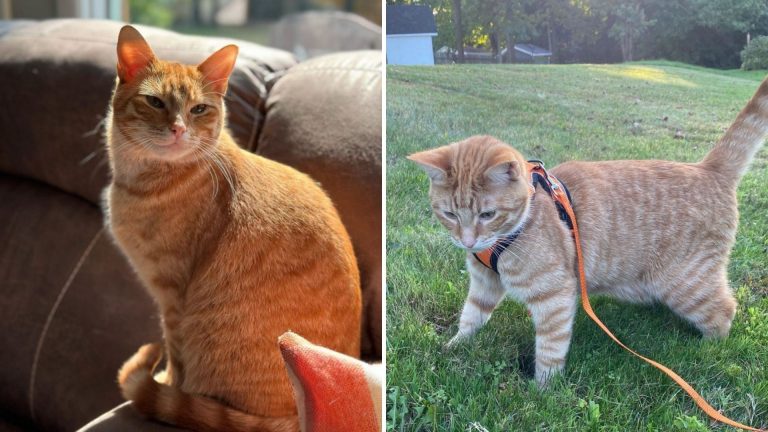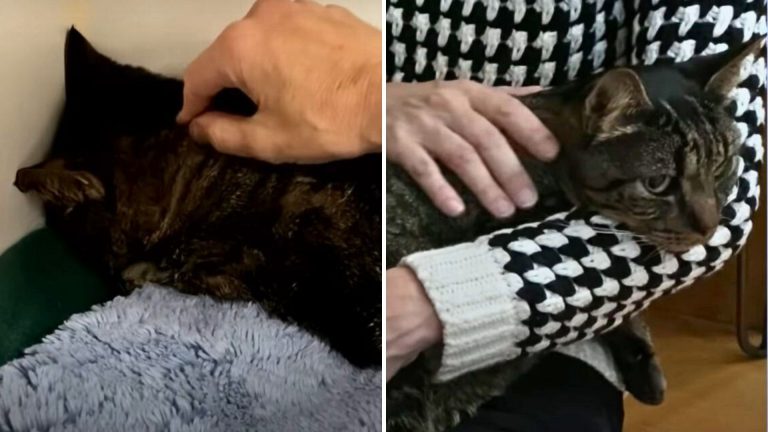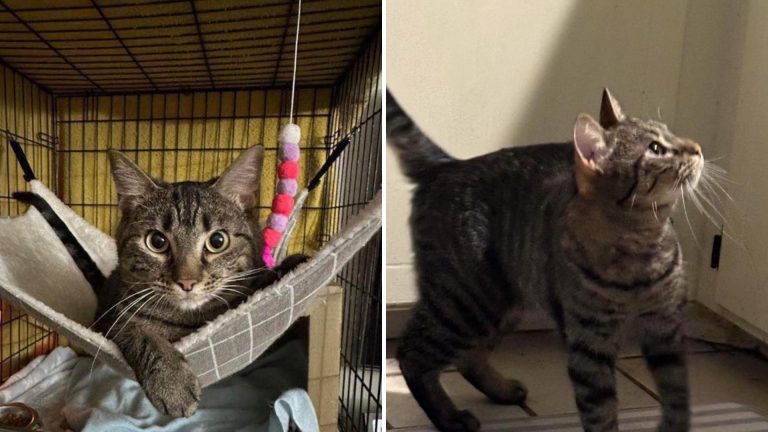Think You Know Cats? Discover The Truth Behind 13 Common Myths

There are many claims about our beloved feline friends. We know for a fact that some of them are undeniably true – for example, that cats are world-class self-groomers – while others couldn’t be more wrong.
Those falsities we love to refer to as myths have managed to endure through the years despite being so unbelievably inaccurate.
In this article, we’re going to debunk them all and shed some light on the real truth about our furry companions.
So, without further ado, let’s jump right into it!
1. Cats Have Nine Lives
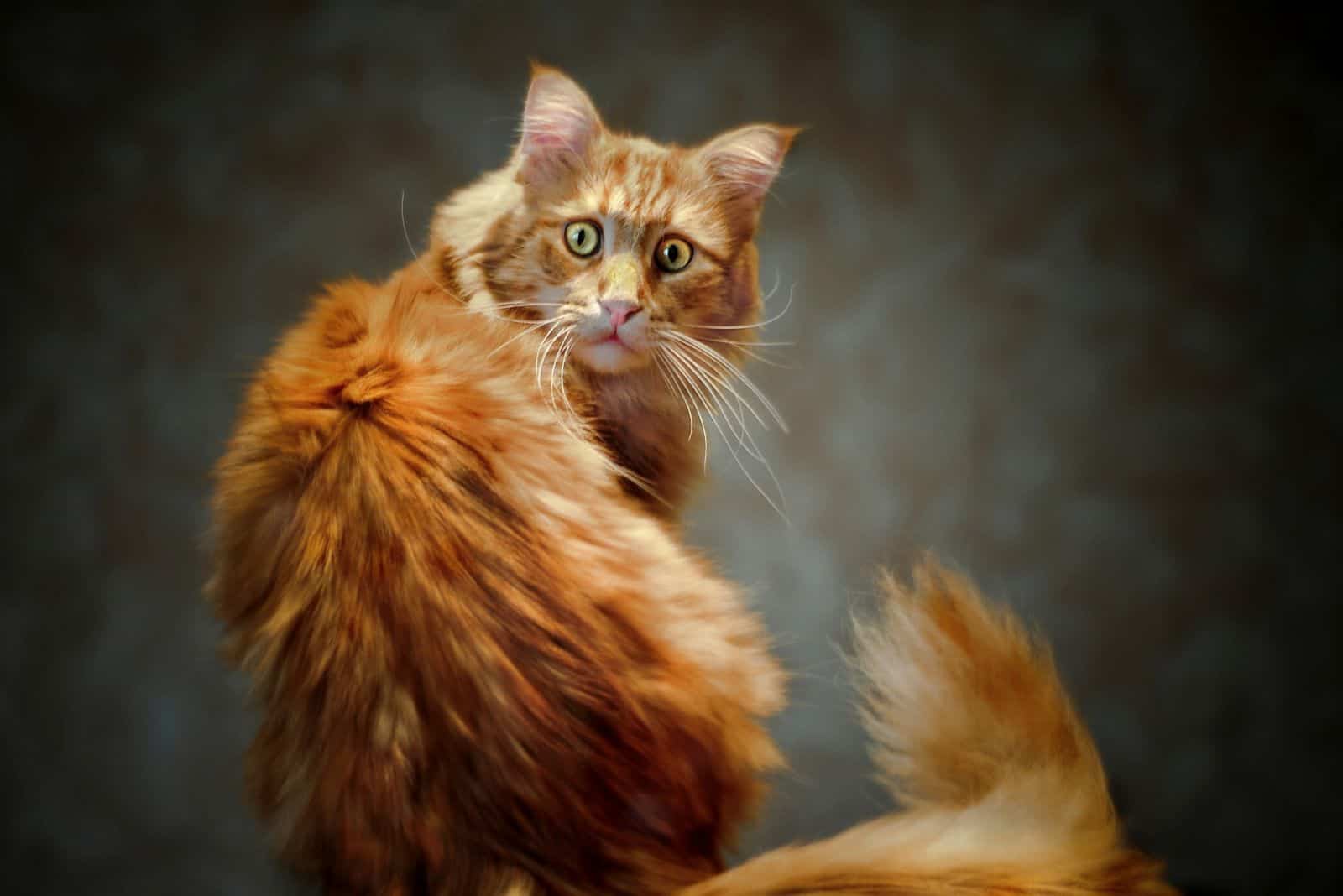
The idea that cats have nine lives originates from Ancient Egypt.
According to belief, the sun god Atum-Ra used to take a feline form, so he could visit the underworld. Apparently, he was also believed to have given birth to eight other gods – totaling nine deities in all.
This resulted in the most widely known cat myth today. However, it is far more likely that this theory is linked to the fact that cats can survive basically anything due to their extreme resilience and agility.
Unfortunately, that doesn’t mean that they have nine chances at immortality. Just like the rest of us, cats also have only one life – and we need to purrtect it at all costs!
2. Black Cats Bring Bad Luck
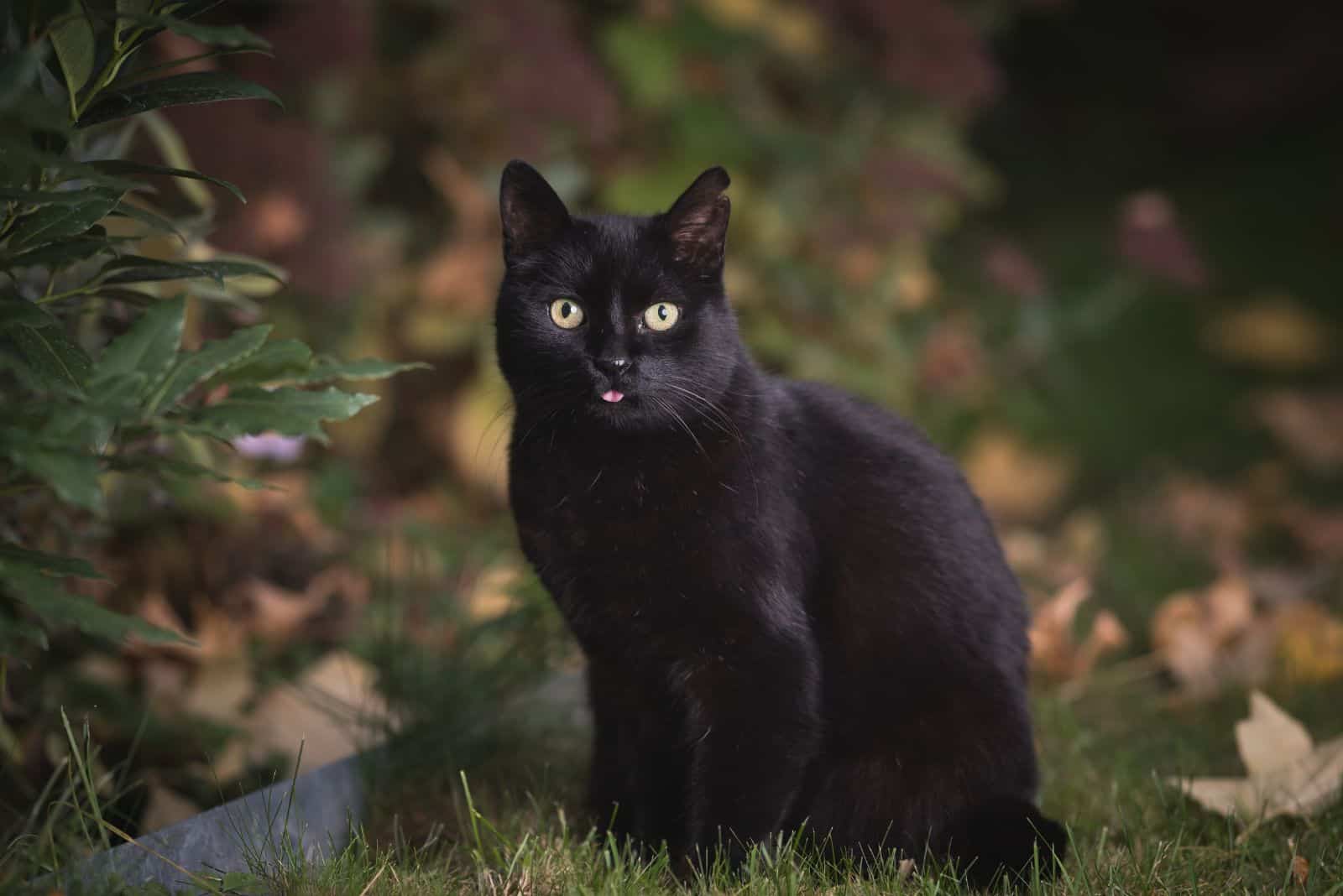
From Greek mythology, and medieval times to folklore of many cultures – the fear of black felines has many origins. Some believe that they bring bad luck, signal death, or were once companions of witches.
Despite their undeserved bad reputation, it’s important to remember that some cultures actually worship black kitties and see them as a sign of great fortune.
Some people really need to shake off their superstitions and remember that the color of feline fur has nothing to do with how lucky they will (or will not) be.
3. Cats Are Nocturnal Creatures
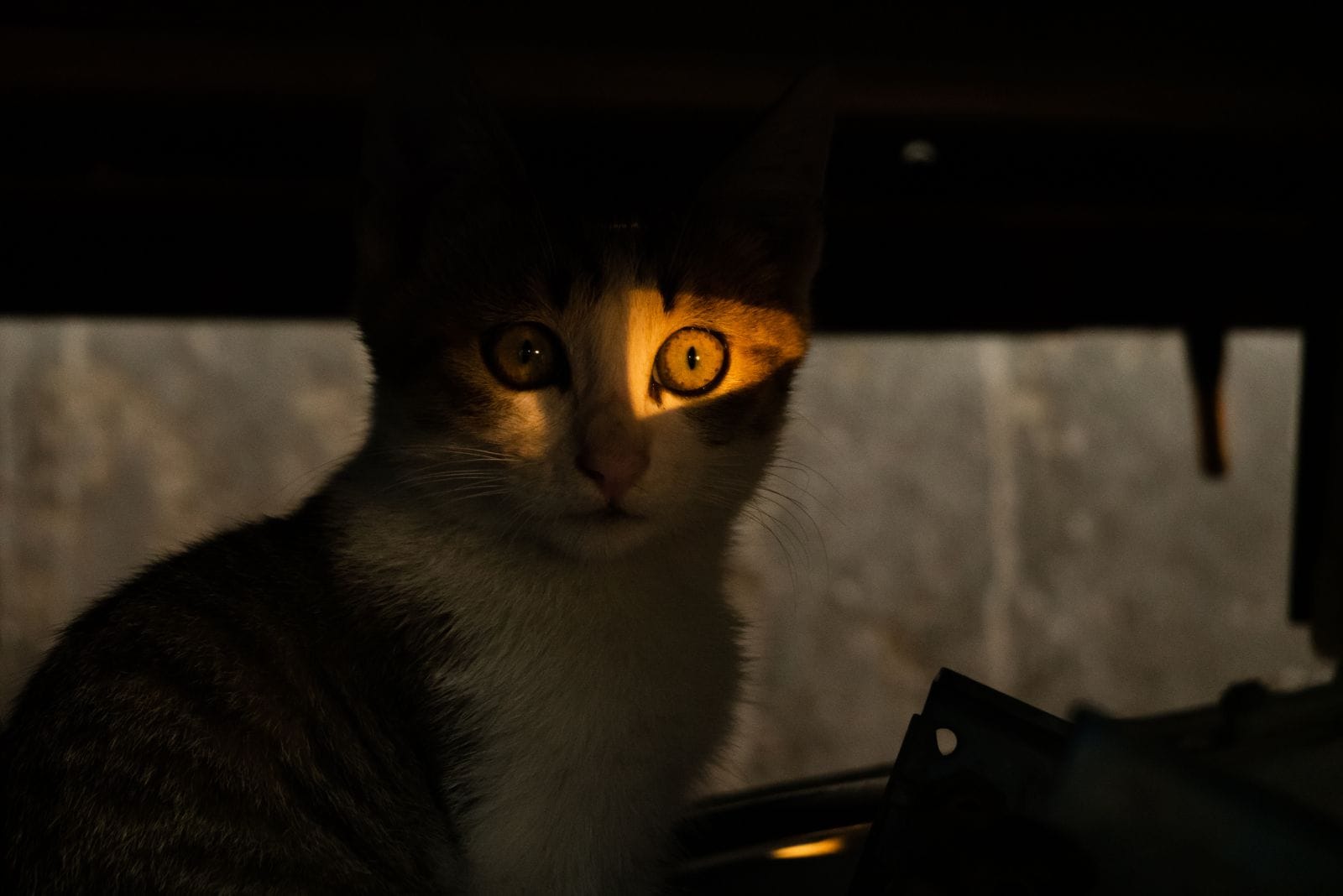
Here’s another fairly common misconception. Rather than being nocturnal (active at night), our feline friends are actually crepuscular animals, which means that they’re most active during dusk and dawn.
4. They Can See In Total Darkness
Even though they have great low-light vision, cats are still unable to see in total darkness. They need the tiniest source of light in order to hunt or stalk their prey.
However, cats can see up to six times better than humans do. That has to count for something, right?
5. All Cats Hate Water
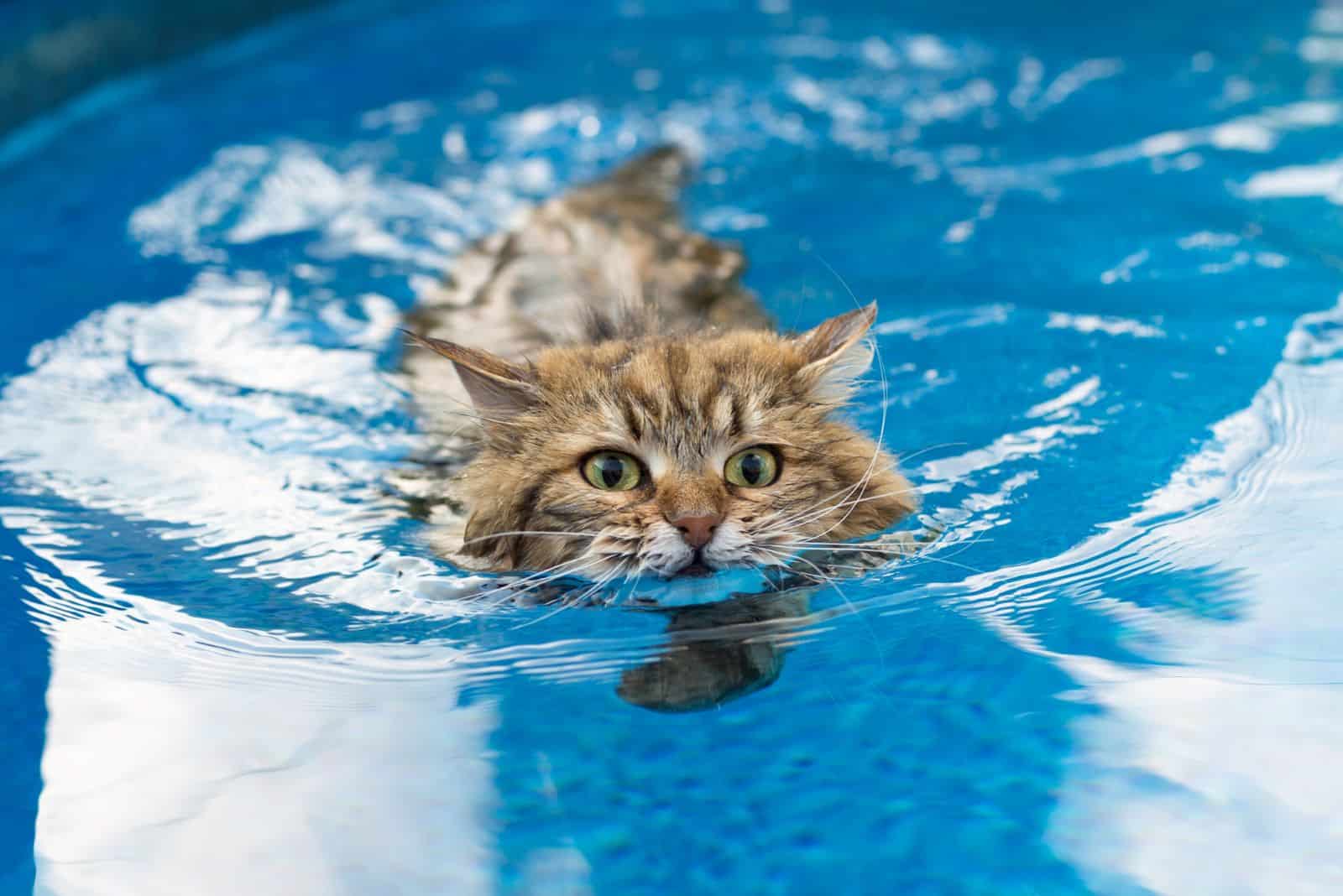
Not many people can say that they have seen a kitty swimming. Because of that, it’s widely believed that cats dislike water.
And while that can be true for some felines – other ones would strongly disagree.
For example, breeds like Maine Coon, Bengal, or Turkish Van simply adore water! Other breeds might not have the same genetic affinities toward it, but they can still be taught how to at least tolerate it.
The key thing is how they are introduced to water as they need to have positive experiences in order to enjoy it.
6. Milk Is A Good Meal Idea For Cats
Many people tend to associate their feline friends with milk. However, did you know that most cats are actually lactose intolerant?
Yup, that’s true! Once weaned, cats usually stop producing enzymes that are responsible for digesting milk. So when consumed, it can upset their stomach, and lead to diarrhea or vomiting.
If they’re regularly fed with milk, some kitties can in fact build a tolerance to it. But this doesn’t mean that they absolutely need it in their diet.
7. Cats Cannot Be Trained
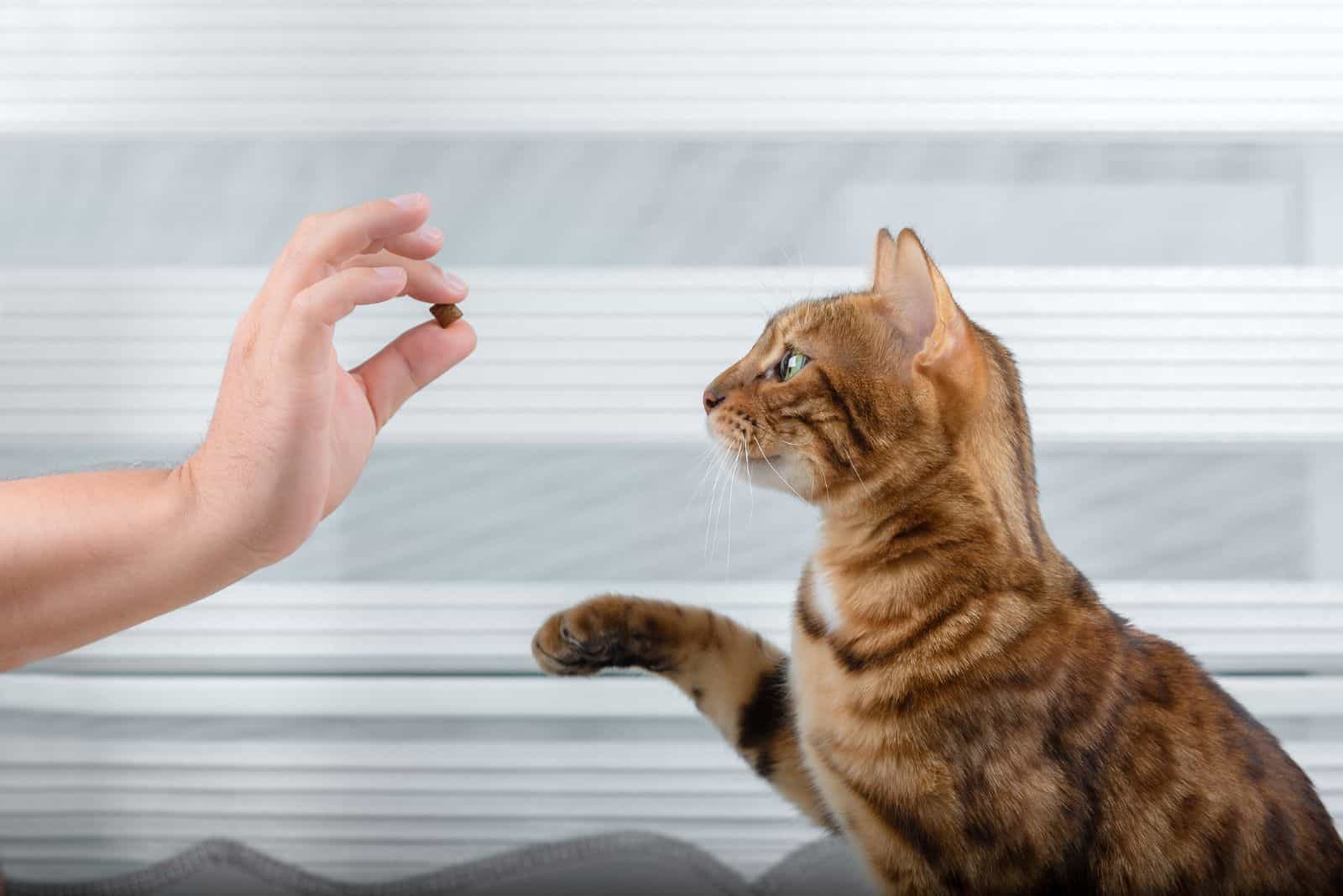
Cats are often seen as stubborn and self-willed. While that is partially true, it’s still not a justifiable reason to believe they cannot be trained.
Felines are just as trainable as dogs are! They are intelligent animals with a playful nature and the ability to memorize many tricks. On top of that, they usually love being trained! Sure, on their own terms, but still – they love it!
8. Cats Purr Only When They’re Happy
It’s true that cats usually purr when they are happy and content. However, there are three other equally common reasons behind purring.
First, they can purr when experiencing certain negative emotions, like anxiety, stress, or pain. In this case, purring is a great way for cats to soothe themselves. It is similar to children who are sucking on their thumb whenever they’re upset or sad.
Next, they can purr when they’re hungry. Apparently, when they are urging their owners to bring them food, cats’ purrs sound more urgent and intense. I’m sure everyone who has a cat knows how a famished purr sounds!
And lastly, they can purr when they’re trying to heal themselves or their owners.
Purrs are essentially low-frequency vibrations that are proven to have healing properties. They can aid in swelling reduction, build muscle, and promote bone and tissue regeneration.
Purring is indeed an amazing healing agent, one which both felines and humans can enjoy.
9. Cats And Dogs Never Get Along
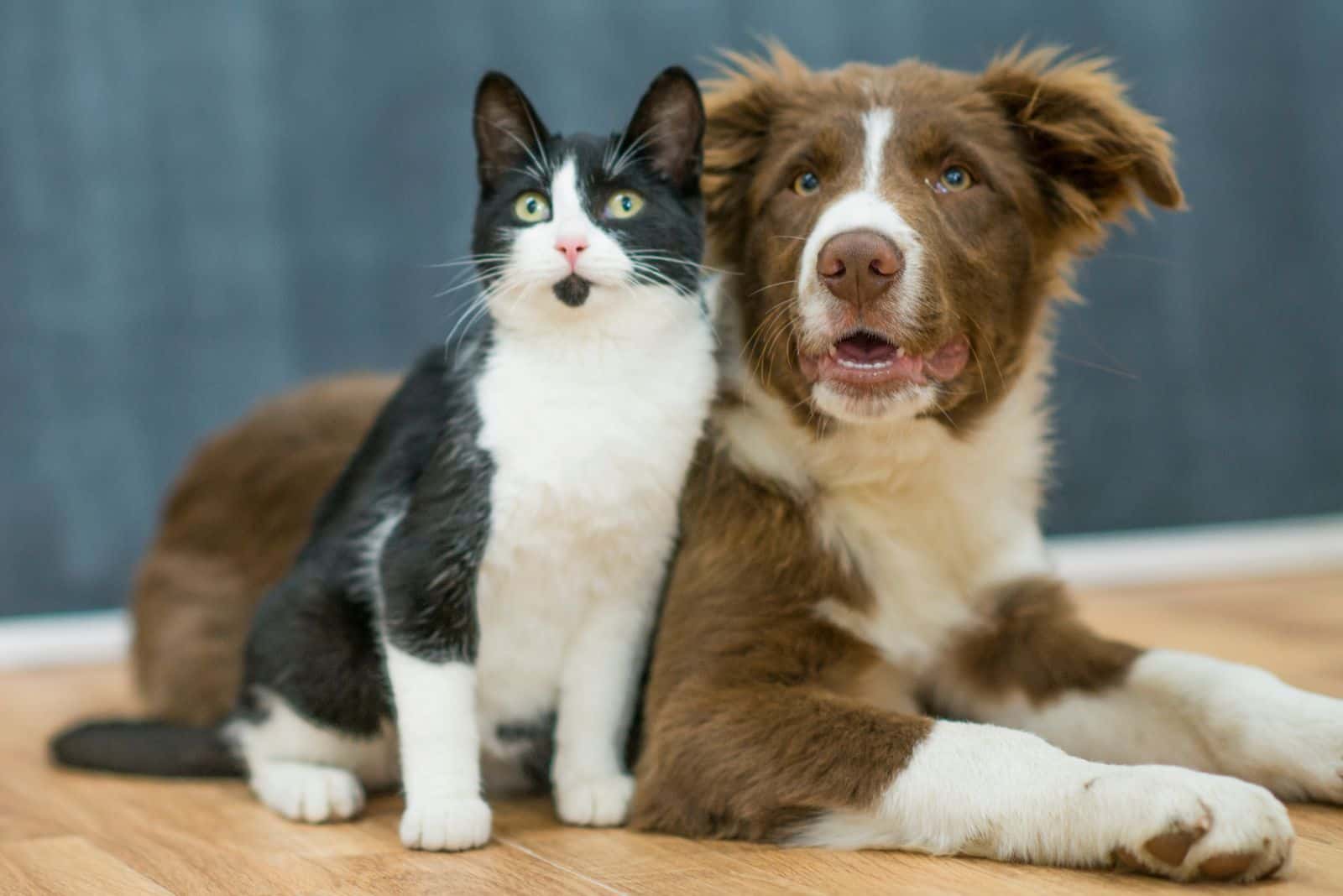
Many people believe that cats and dogs are each other’s arch-nemesis. There’s even an expression many of us often use, and it’s “to fight like cat and dog.”
However, the truth is that cats and dogs can get along just fine. Sure, they can have their differences and even engage in a conflict or two, but it’s the same with people, isn’t it?
Their relationship is entirely our responsibility. If we put some effort into properly introducing them to each other, they can undoubtedly become best friends.
10. Cats Understand Punishment
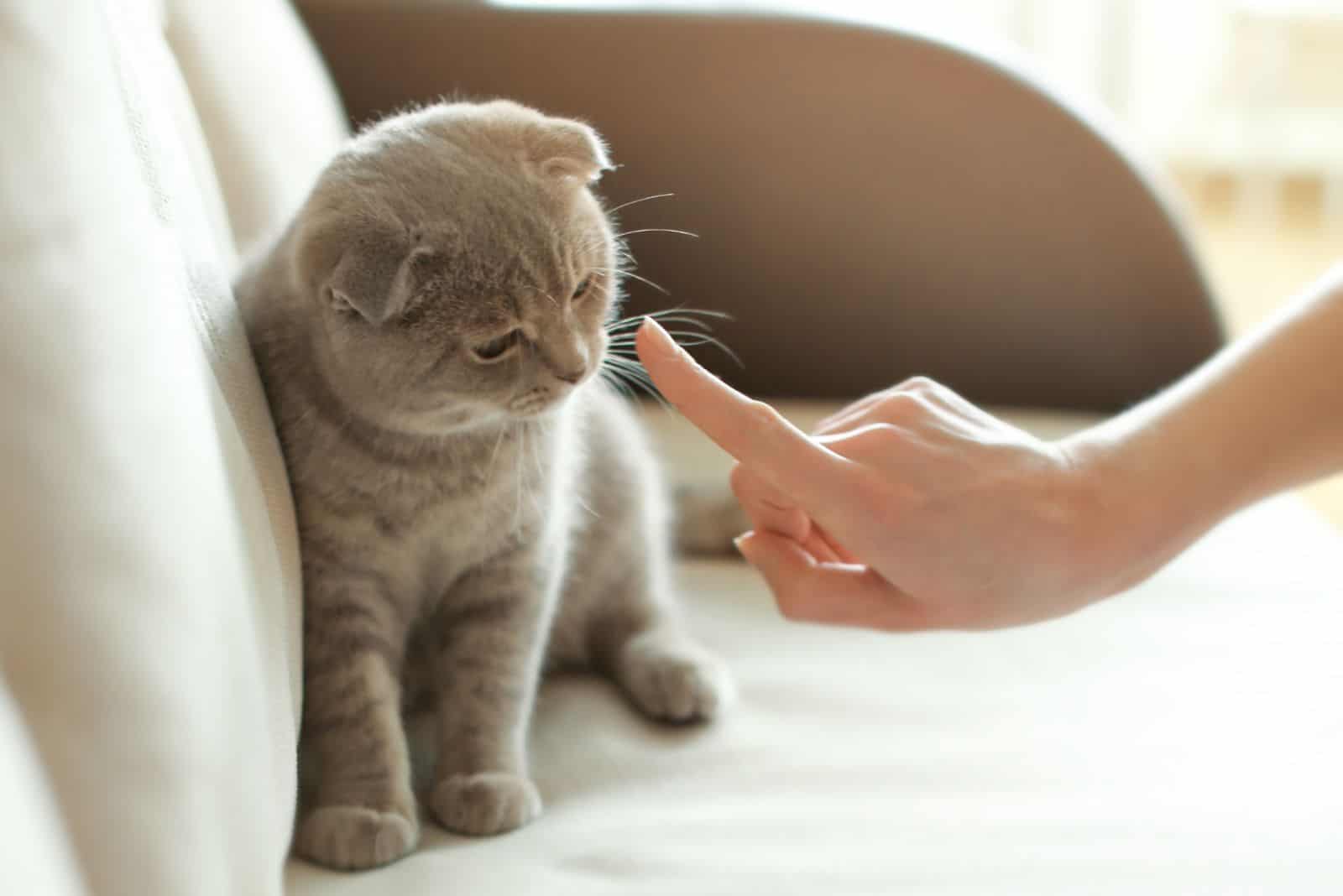
Well, they most certainly don’t! Yelling or physical discipline can make cats extremely anxious and can even lead to depression.
Felines respond much better to rewards and praises. Therefore, positive reinforcement is a far better idea than punishment.
Sure, it’s tough to shower your fluff with praise when she breaks your late grandma’s favorite vase. No one said cat parenting would be easy, my friend.
11. Cats Always Land On Their Feet
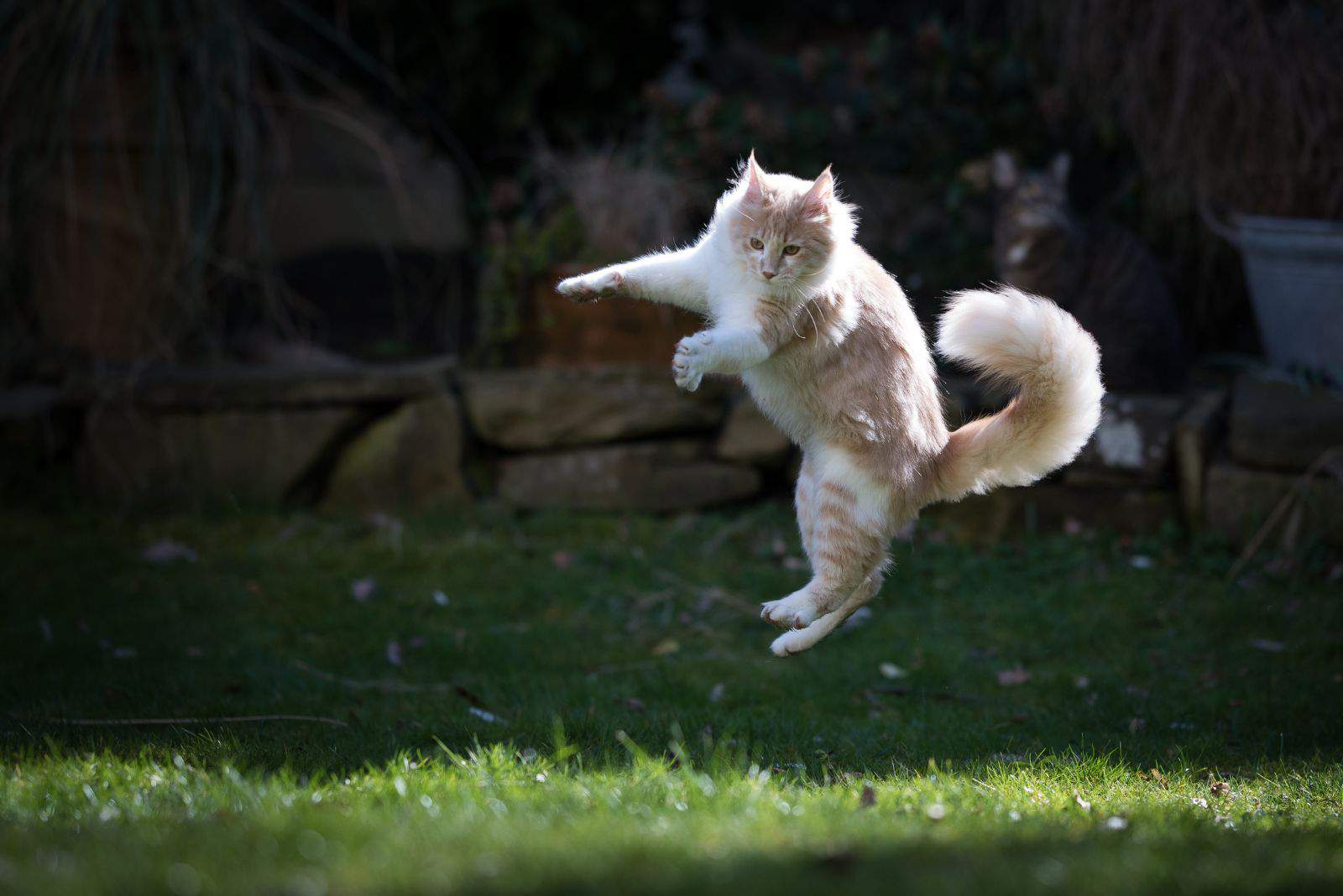
Felines are famous for their righting reflex, which is a term referring to their ability to quickly twist around in the air when they’re falling from great heights.
However, this reflex sometimes fails them, and they don’t manage to turn in time, which results in a clumsy fall.
This means that cats don’t always land on their feet – even though they’re pretty consistent in it.
12. They Are Strictly Solitary Animals
While they’re often perceived as loners and solitary creatures, cats are actually able to build strong and unbreakable bonds with humans and other pets.
Their tendency for independence is not to be questioned – but neither is their friendly nature!
13. Cats Are Unloving
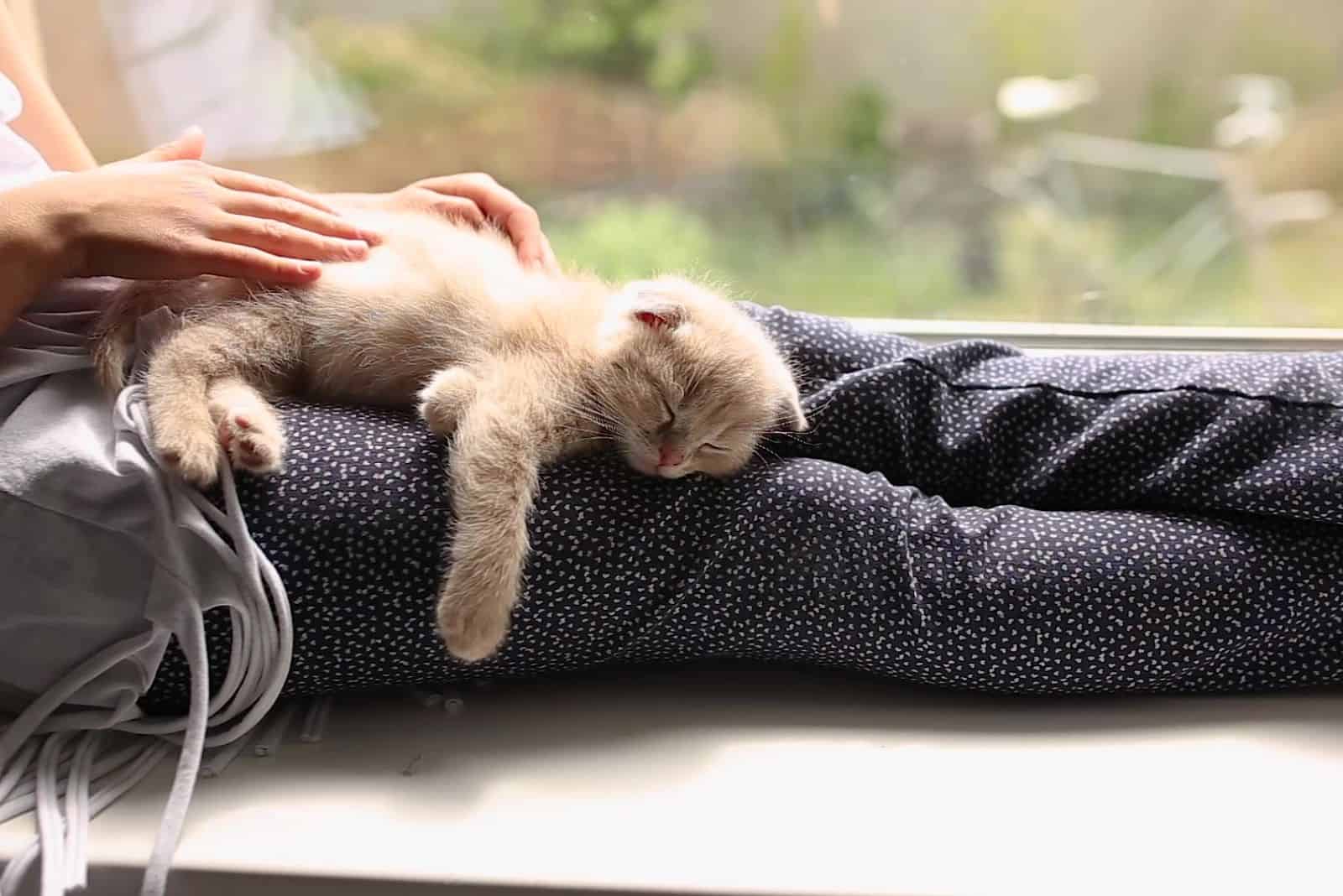
And lastly, the most unfair myth of all is that cats aren’t loving or affectionate. However, ask any cat parent in the world, and they’ll tell you how wrong that statement is.
Cats thrive in relationships with humans and other animals. They are more than able to show love and appreciation, but their means are unique and much different than those of dogs.
In order to debunk this myth for yourself, I suggest you spend some time with a feline of your choice. I assure you, you’ll become a cat person in no time!

